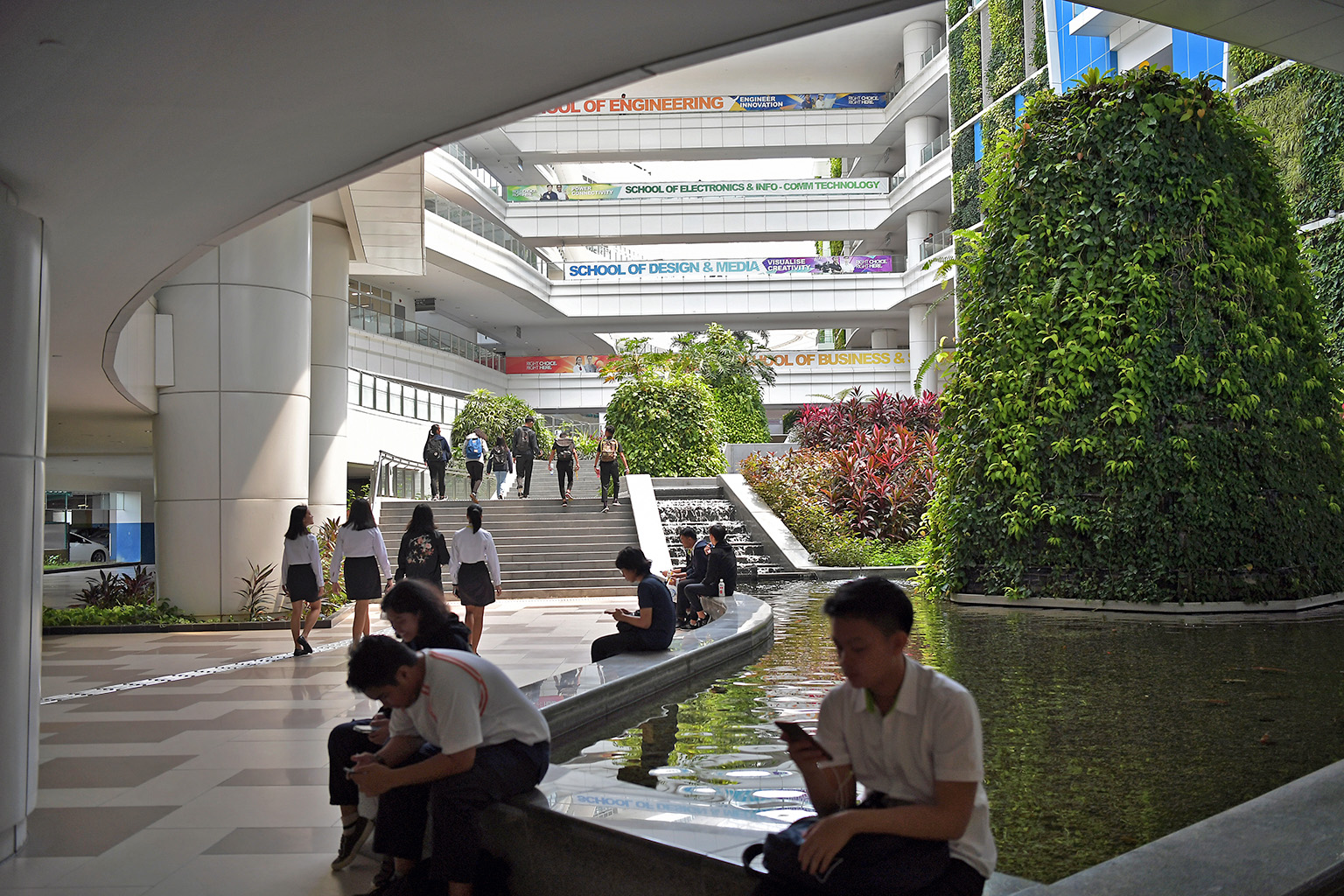Up to 50,000 graduates will come into the workforce this year from various tertiary institutions in Singapore and overseas. In the past, almost 90 per cent would have managed to secure a decent job within six months of graduation.
But this year will be different.
The Covid-19 pandemic has destroyed companies, erased jobs and dragged economies worldwide into their worst crisis in generations.
In Singapore, the Government estimates that the ratio of job vacancies to unemployed people stands at 0.71. In short, there are only seven jobs for every 10 persons seeking a job. Even with those figures, one can't help suspect, based on anecdotal evidence, that these numbers are more optimistic than what is playing out on the ground.
Some 50,000 people are estimated to have lost their jobs or been furloughed over the past three months. Another 150,000 have had their salaries cut by over 25 per cent. Economists fear job losses could go beyond 150,000 by the end of this year as more companies - especially in various service sector industries - are forced to shut down for good.
If so, unemployment, now at below 3 per cent, could go well past 4 per cent.
So what does a young graduate have to look forward to as they emerge into the market during these extraordinarily challenging times?
With the economy forecast to contract by up to 7 per cent this year, the Government has moved quickly to provide relief via four budgets totalling an unprecedented $93 billion in support. Some $2 billion was rolled out in the most recent Fortitude Budget to create 40,000 jobs, 25,000 traineeships, 30,000 training places and hiring incentives.
JOBS. JOBS. JOBS.
Whatever the case, workplaces will change, employers' priorities will change and skills required by companies will also be different from the pre-Covid era.
For one thing, some companies will start gradually downsizing.

There may not be as many jobs in financial services, the travel industry and retail. And many administration jobs will disappear as companies seek digital and technology-based solutions to manual operations. Many jobs in the so-called gig economy will also have been dealt death blows, as start-ups run out of much-needed funding.
-
Looking for a job? You've got to...
-
• Be a digital native
• Show agility & flexibility
• Accept a lower starting salary
• Prepare to work from home
• Multitask
• Be creative & innovative
So tertiary or vocational-trained graduates hoping for a comfortable white-collar position will be disappointed.
That said, the Government has committed itself to boosting employment in the civil service, fast-tracking the creation of 15,000 public sector jobs. It is also working with businesses to create 25,000 jobs in a range of roles.
But even these jobs are likely to require specific skill-sets.
Many of the public service jobs are likely to be in the healthcare, technology, social services and education sectors. Graduates will have to undergo training or career conversion programmes to enable them to occupy these positions.
In healthcare, obvious areas are nursing and eldercare. In education, the area of early childhood education is gaining increasing prominence.
But unlike before, many of these positions will become increasingly professionalised, and require specialised qualifications, as is the case in most developed economies. Those with general degrees and diplomas will have to undergo conversion programmes.
Other sectors which will recruit include pharmaceuticals, digital technologies, logistics and supply chain management, communications, engineering services and infrastructure development. These have shown resilience amid the pandemic.
Engineering and infrastructure development projects will require architects, draughtsmen; civil, mechanical and electrical engineers; and project managers.
Recently, Transport Minister Khaw Boon Wan pointed out that there are plentiful job opportunities for engineering students in rail sector projects, not just in Singapore but also in China, India, Vietnam and Thailand, which are rapidly expanding their rail networks, including high speed rail. In a somewhat similar vein, Minister in the Prime Minister's Office and Second Minister for Finance Indranee Rajah noted that infrastructure remains a bright spot for jobs.
It was recently reported that Singapore has secured $13 billion in foreign investment commitments from January to April this year. The investments, in areas such as electronics and infocomm media, are expected to generate several thousand jobs in the coming years, according to Minister for Trade and Industry Chan Chun Sing.
ExxonMobil, Micron Technology, STMicroelectronics and Thermo Fisher Scientific are among the global giants expanding and recruiting here. Meanwhile, e-commerce platforms Lazada and Shopee are hiring for roles in data analytics, business development and product development amid the rise of online shopping.
Other - somewhat outlier jobs - could be in the areas of environmental and resource management, which could include waste management, water resources management, environmental management and even high-tech farming.
Jobs in the legal sector, corporate head offices and financial services could also pick up if geopolitical uncertainties elsewhere in Asia prompt capital flight to the safer shores of Singapore.
But perhaps the biggest opportunities will come in the realm of technology.
Artificial intelligence, Internet of Things, big data, and virtual and augmented reality will all feature hugely in the new economy. The pandemic and lockdown have also accelerated the growth of e-commerce, online shopping, online learning and e-entertainment. Remote working and conferencing have been shown to be feasible and will become permanent features. Just check out remoteleaf.com/whoishiring.
Tele-medicine, e-banking, digital marketing and e-payment systems will all grow.
All this has increased demand for people with expertise in data analytics, coding, web designing, digital marketing, robotics, cybersecurity and more. Many of these jobs may even pay fairly well as companies spend more on their e-businesses and cut back on the traditional brick-and-mortar approach.
But to find these jobs, graduates need to have qualifications in data and digital skills. They will have to undergo post-graduate on-the-job training and conversion programmes.
But here's the thing: The greater application of technology will also enable fresh graduates to seek overseas opportunities from the comfort of their home. An employer looking to hire, say, a Web designer or a digital marketer or even a content specialist, can employ someone in another country and possibly even without the need for an employment pass or work permit.
MANAGE EXPECTATIONS
However, fresh graduates have to be realistic in their choices and expectations.
Ideas they had about job descriptions and remuneration prior to Covid-19 will have to be tempered. Starting salaries are likely to be lower than for previous cohorts. The dream of an office or own workstation may be a thing of the past. Graduates could work for multiple employers, doing "tasks" rather than jobs.
Companies will be more cost-conscious and will aim to save every penny wherever they can - be it manpower or rental space.
Human resources consultant Bernard Marr highlights eight skills to survive the job market in the post-Covid world. These are tech savviness; adaptability and flexibility; creativity and innovation; data literacy; critical thinking; digital and coding skills; leadership; and lifelong learning.
And here are some tips for the young graduate job-seeker: Use social media - update your LinkedIn account; track career websites; do more online courses to upgrade your skills; consider volunteerism to expand your networks and showcase your capabilities; brush up on regional languages and phrases; keep updated on current affairs.
Being young and with no major financial commitments, many fresh graduates should be versatile enough to meet the challenges of the new normal in the workplace. The key driving philosophy must be "adopt, adapt and acquire new skills".
The tertiary and vocational training acquired in ITE, polytechnics or universities is just the first step in preparing young graduates for the working world. The next step is to upskill appropriately for specific jobs. Don't underestimate the power of positive thinking, and motivated action.

